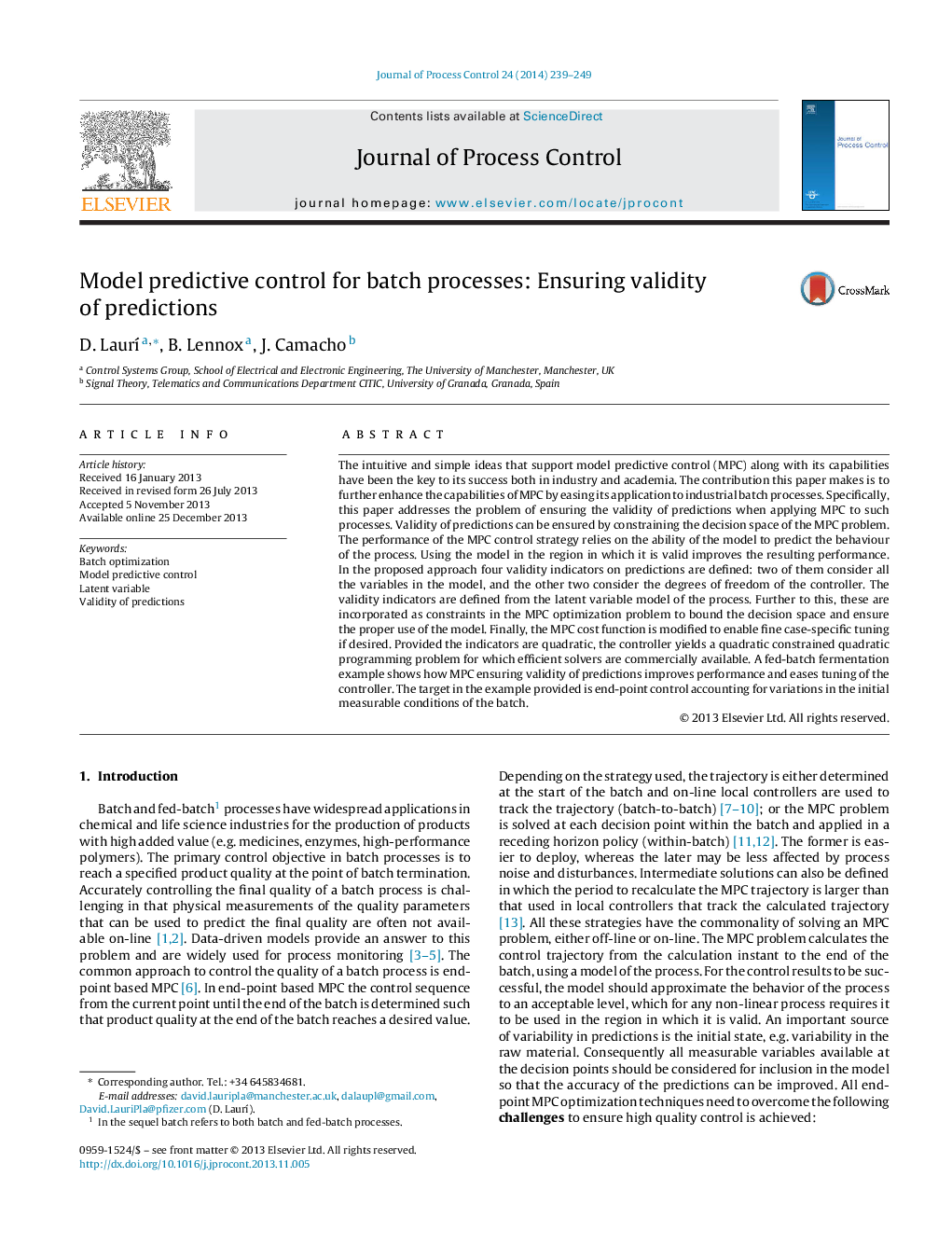| کد مقاله | کد نشریه | سال انتشار | مقاله انگلیسی | نسخه تمام متن |
|---|---|---|---|---|
| 688981 | 889583 | 2014 | 11 صفحه PDF | دانلود رایگان |
• We propose an MPC strategy for batch processes with hard constraints on model validity.
• Hard constraints ensure proper use of the model which improves prediction accuracy.
• Better predictions lead to improved control results in MPC.
• The proposed strategy is easy to deploy as no initial trial and error of the tuning parameters is needed.
• Provided additional case-specific tunning parameters further improves the control results.
The intuitive and simple ideas that support model predictive control (MPC) along with its capabilities have been the key to its success both in industry and academia. The contribution this paper makes is to further enhance the capabilities of MPC by easing its application to industrial batch processes. Specifically, this paper addresses the problem of ensuring the validity of predictions when applying MPC to such processes. Validity of predictions can be ensured by constraining the decision space of the MPC problem. The performance of the MPC control strategy relies on the ability of the model to predict the behaviour of the process. Using the model in the region in which it is valid improves the resulting performance. In the proposed approach four validity indicators on predictions are defined: two of them consider all the variables in the model, and the other two consider the degrees of freedom of the controller. The validity indicators are defined from the latent variable model of the process. Further to this, these are incorporated as constraints in the MPC optimization problem to bound the decision space and ensure the proper use of the model. Finally, the MPC cost function is modified to enable fine case-specific tuning if desired. Provided the indicators are quadratic, the controller yields a quadratic constrained quadratic programming problem for which efficient solvers are commercially available. A fed-batch fermentation example shows how MPC ensuring validity of predictions improves performance and eases tuning of the controller. The target in the example provided is end-point control accounting for variations in the initial measurable conditions of the batch.
Journal: Journal of Process Control - Volume 24, Issue 1, January 2014, Pages 239–249
